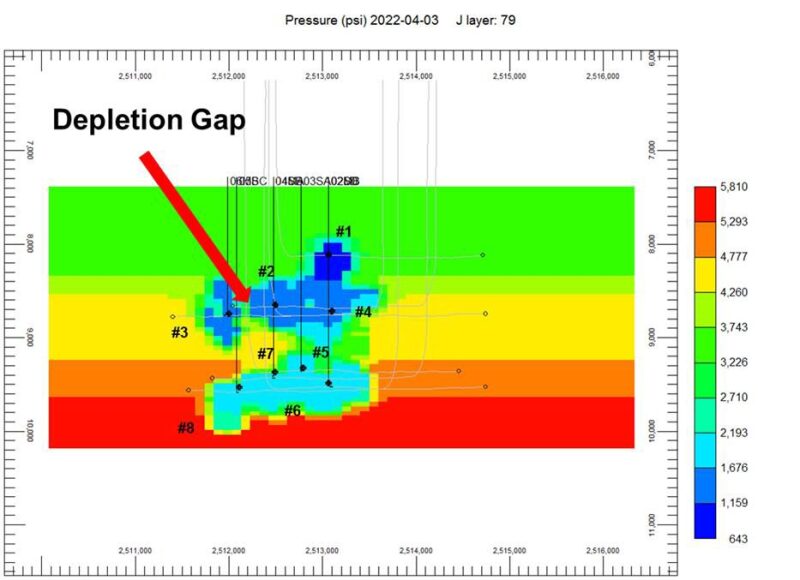The Challenge
The dynamics of full-field development for multi-target Midland Basin acreage have a tremendous impact on the total EUR per section. Depletion can be hard to model and results are often only clearly seen after a significant amount of wells has been drilled. Traditional models assume unrealistic fracture geometries and do not account for the amount of variability in the geology.
The Solution
Using a FracStar® surface array, acoustic data were acquired during the treatment of an eight-well pad in three target formations. Microseismic events and the created fracture network were imaged and allowed for a realistic reservoir model due to the accurate modeling of the discrete fracture network, distinction between propped and unpropped fractures, and the calculated permeability enhancement due to the treatment. Microseismic–based reservoir simulation was then used to estimate production and understand the interference between wells.
The Results
Microseismic-derived permeability enhancement distribution in a reservoir simulation workflow accurately calculated oil, gas, and water production rates. The model was calibrated using 6 months of production data. Pressure depletion results were used to evaluate wellbore spacing and showed a depletion gap between two wellbores.

The Value
Microseismic event locations and attributes such as source mechanisms and moment magnitudes helped build a realistic reservoir model that mapped and accounted for the variability in the rock and accurately depicted the drainage pattern and the interference between wellbores. The model identified potential for an additional well that can help extract the oil otherwise left behind and therefore increase the NPV of the asset.
Learn more about microseismic-based reservoir simulation


